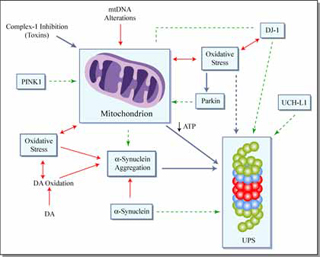Course Description
Parkinson’s disease (PD) is a chronic, progressive, degenerative disease of the brain that produces movement disorders and deficits in executive functions, working memory, visuospatial functions, and internal control of attention. It is named after James Parkinson (1755-1824), the English neurologist who …
Parkinson’s disease (PD) is a chronic, progressive, degenerative disease of the brain that produces movement disorders and deficits in executive functions, working memory, visuospatial functions, and internal control of attention. It is named after James Parkinson (1755-1824), the English neurologist who described the first case.
This six-week summer workshop explored different aspects of PD, including clinical characteristics, structural neuroimaging, neuropathology, genetics, and cognitive function (mental status, cognitive control processes, working memory, and long-term declarative memory). The workshop did not take up the topics of motor control, nondeclarative memory, or treatment.
Course Info
Instructor
Departments
Learning Resource Types









